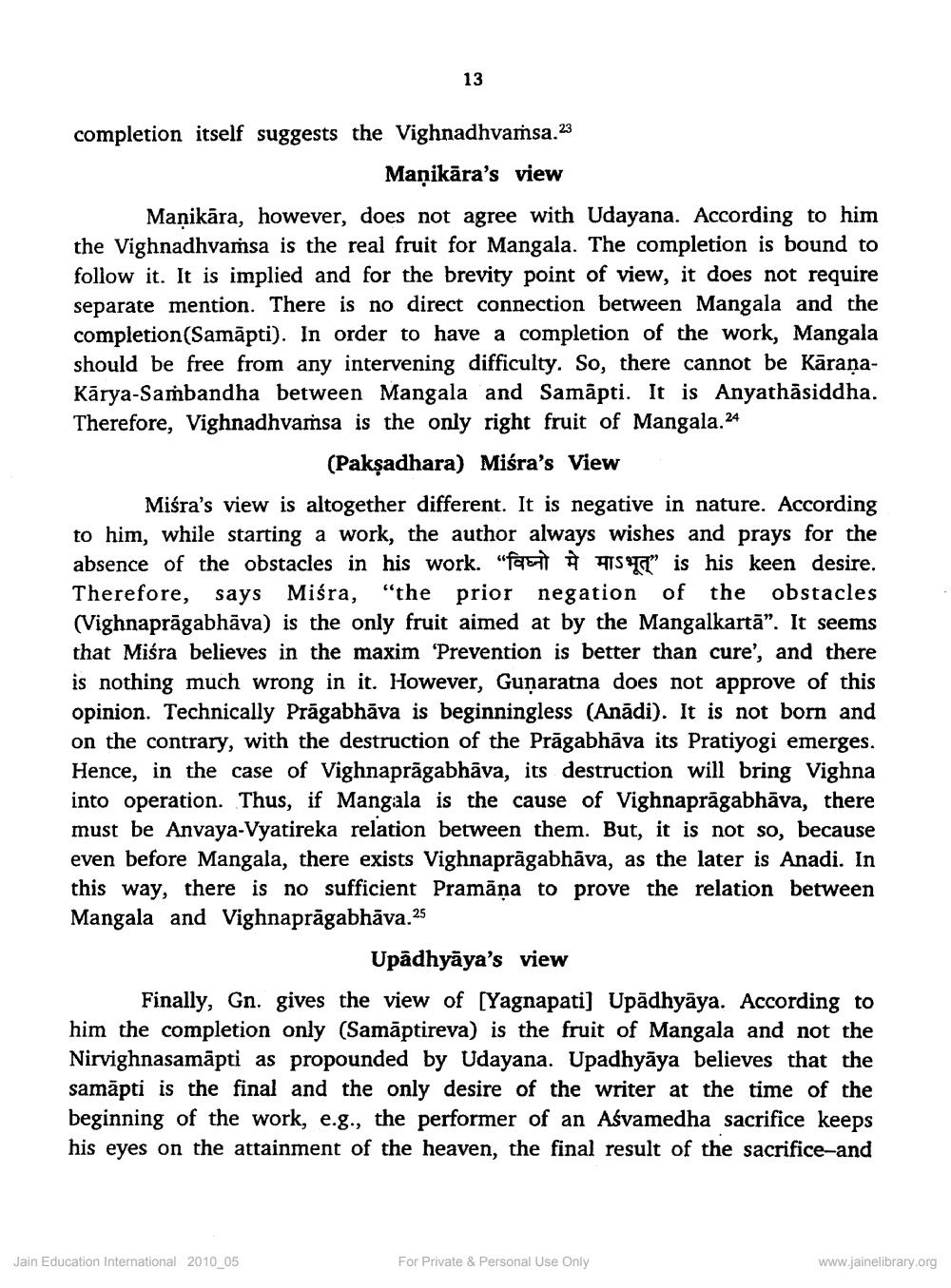________________
13
completion itself suggests the Vighnadhvamsa.2
Manikara's view
Manikara, however, does not agree with Udayana. According to him the Vighnadhvamsa is the real fruit for Mangala. The completion is bound to follow it. It is implied and for the brevity point of view, it does not require separate mention. There is no direct connection between Mangala and the completion (Samāpti). In order to have a completion of the work, Mangala should be free from any intervening difficulty. So, there cannot be KāraṇaKarya-Sambandha between Mangala and Samapti. It is Anyathāsiddha. Therefore, Vighnadhvamsa is the only right fruit of Mangala.24
(Pakṣadhara) Miśra's View
Miśra's view is altogether different. It is negative in nature. According to him, while starting a work, the author always wishes and prays for the absence of the obstacles in his work. "fa" is his keen desire. Therefore, says Miśra, "the prior negation of the obstacles (Vighnaprāgabhäva) is the only fruit aimed at by the Mangalkartā". It seems that Miśra believes in the maxim 'Prevention is better than cure', and there is nothing much wrong in it. However, Gunaratna does not approve of this opinion. Technically Prāgabhāva is beginningless (Anādi). It is not born and on the contrary, with the destruction of the Prāgabhāva its Pratiyogi emerges. Hence, in the case of Vighnaprāgabhāva, its destruction will bring Vighna into operation. Thus, if Mangala is the cause of Vighnaprāgabhāva, there must be Anvaya-Vyatireka relation between them. But, it is not so, because even before Mangala, there exists Vighnaprāgabhāva, as the later is Anadi. In this way, there is no sufficient Pramāņa to prove the relation between Mangala and Vighnaprāgabhāva.25
Upadhyāya's view
Finally, Gn. gives the view of [Yagnapati] Upadhyāya. According to him the completion only (Samāptireva) is the fruit of Mangala and not the Nirvighnasamāpti as propounded by Udayana. Upadhyāya believes that the samāpti is the final and the only desire of the writer at the time of the beginning of the work, e.g., the performer of an Asvamedha sacrifice keeps his eyes on the attainment of the heaven, the final result of the sacrifice-and
Jain Education International 2010_05
For Private & Personal Use Only
www.jainelibrary.org




